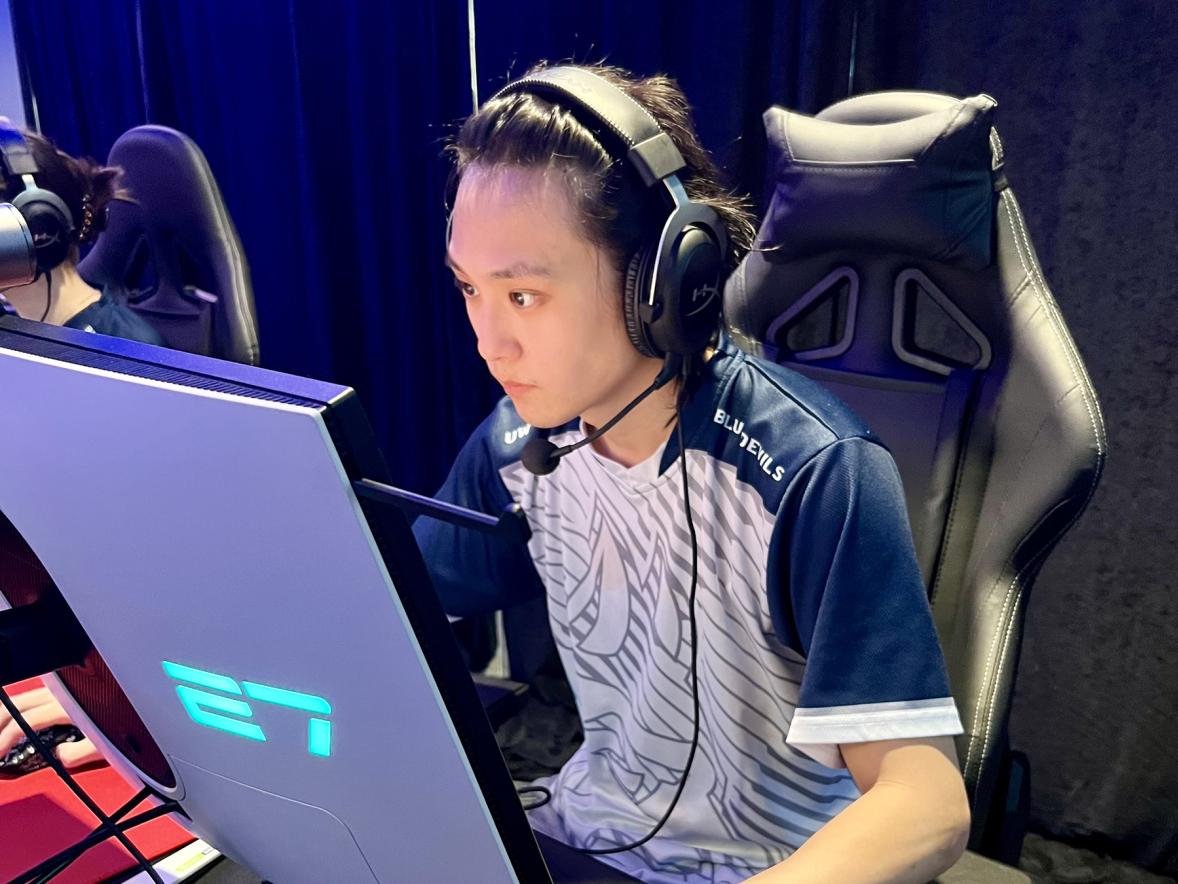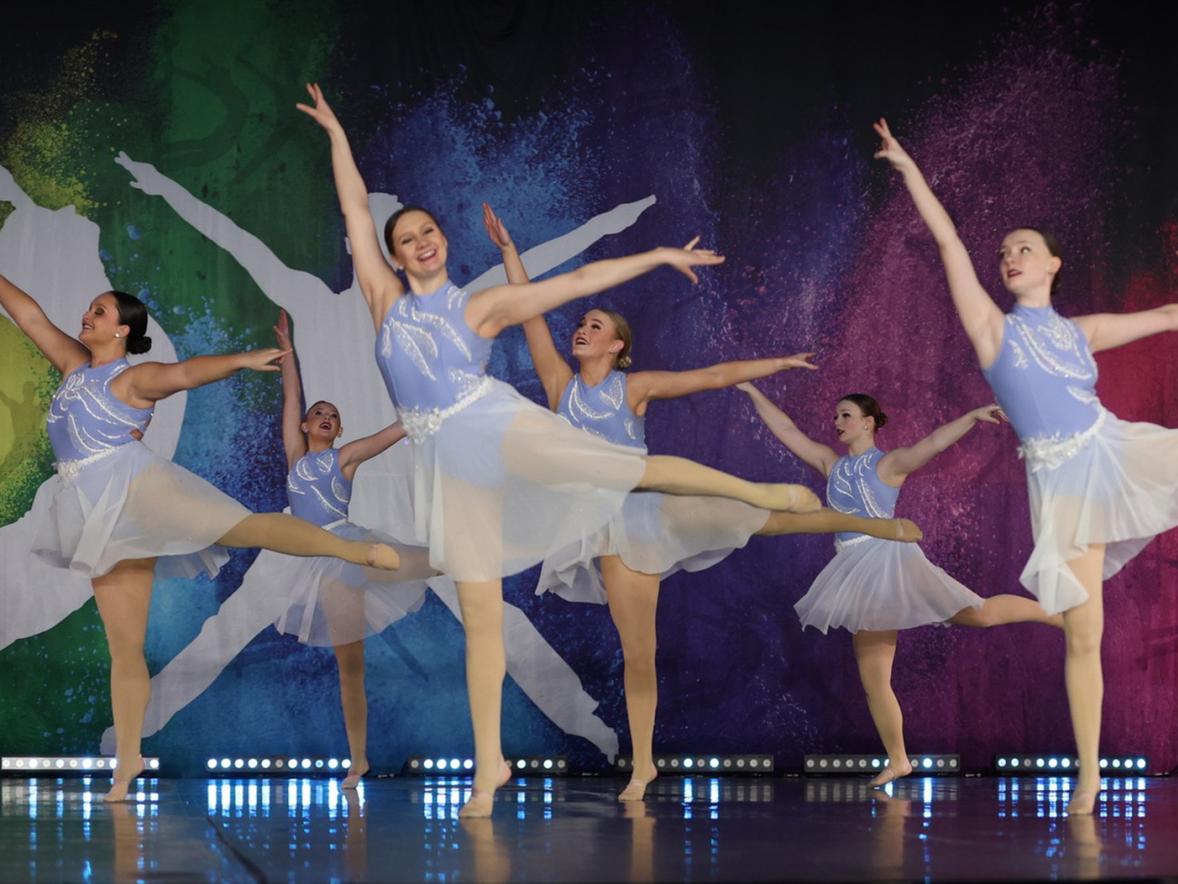Computer and video game companies, directly and indirectly, employ more than 120,000 people in 34 states. The average salary for direct employees is $75,000.
UW-Stout's Bachelor of Fine Arts (B.F.A.) in Game Design & Development is an award-winning program where students gain core skills in art and design such as drawing, 3D modeling, and animation. As a game artist, you will create the visual elements necessary for games including concept art, characters, level design, and animations. Game developers work in entertainment, training, advertising, simulation, and education.

UW-Stout's School of Art & Design is accredited by the National Association for Schools of Art and Design.
Career-Defining Curriculum
To be successful in the industry, you must be skilled and able to work with your counterparts and apply those skills to creating games. UW-Stout offers Game Design and Development programs focusing on both art and computer science skills to serve the industry. Students will develop deeper skills in either discipline before joining together in the three capstone advanced project courses. These courses simulate industry by creating games using a team environment.
Program Highlights
- Collaborate with computer science students
- Courses covering two- and three-dimensional models, animation and visual effects for video games, television, movies
- Three labs with industry-standard hardware and software
- AAA development kits, Intuos Cintiq Displays, HD and 3D projectors, and virtual reality headsets
Awards & Recognition
The game design and development program is among the very best in the nation. That’s according to new rankings from Princeton Review, an educational services company that surveyed 150 colleges and universities with game design majors. The 2023 rankings put UW-Stout at #1 in Wisconsin and #30 in the U.S..
- National co-champion at the E3 College Game Competition
- Received the Student Showcase Award, International Digital Media and Arts Association Conference
- Nationally ranked by Animation Career Review
Use the Request Information form to receive a program summary and learn more about the Bachelor of Fine Arts degree in Game Design and Development.
Request Information
Modern games are among the most demanding of computer applications, requiring knowledge of advanced mathematics and physics which form the basis of the 3D graphics, artificial intelligence and game engines that make up the game programs. Using core skills in art and design such as drawing, digital imaging and animation, game artists create the visual elements necessary for the game including heads-up interface components, 3D environments and 3D characters.
"There is a wealth of information and tutorials online, but nothing can compare to a tangible, real-time studio environment. The art and design professors at UW-Stout are dedicated, passionate and kind; working with them is an irreplaceable experience."
-- Emily DillhuntB.F.A Game Design and Development
The world is going digital. Entertainment is no exception. Sales of computer and video games have grown consistently over the past ten years and the industry is predicted to expand even more. Serious games feature the use of interactive game technologies within non-entertainment sectors for training, advertising, simulation or education.
Showcase of Student Work
New First-Year Students
Students admitted as Pre-Bachelor of Fine Arts (Pre-BFA) students will join an exciting community of first-year art and design students with classes and events geared towards preparing you for a successful application to the intended BFA program.
As a student accepted into one of the six BFA programs, please be aware of the following:
- You will be required to submit a portfolio in the spring semester of your freshman year to apply for acceptance into the intended BFA program. Portfolios will be evaluated by School of Art and Design faculty. Through your first-year experience, you will be given the tools and skills required to prepare and submit the portfolio, and the necessary support to navigate the application process.
Transfer Students
- All transfer students will be admitted as a Pre-Bachelor of Fine Arts (Pre-BFA) student. Upon acceptance information will be provided on how to submit a portfolio and essay to be reviewed by a committee of School of Art & Design faculty, who will determine direct admissions into the BFA major of your choice.
- Priority Deadlines:
- Spring Admission: October 1 at 9 a.m. CST
- Fall Admission: March 1 at 9 a.m. CST
- Submissions may be made after the priority date; however, there is no guarantee when it will be reviewed for a decision nor what art-specific coursework you may be able to get into after the review is completed and whether or not registration for the next semester has begun. There is a $10 application fee assessed at the time you electronically submit your portfolio.
Transfer students are considered for both fall and spring. This includes portfolio and essay submission by the priority deadline. Students applying for one of the BFA programs will remain admitted as a "Pre-BFA" student if you:
- do not submit a portfolio/essay
or - apply after the BFA program has closed
or - are not approved for the BFA program after submission of a portfolio/essay.
You may then apply for a change of major in subsequent semesters, depending upon available openings in the program. If needed, BFA Foundations courses will be available to "Pre-BFA" students pending seat availability.
Award-Winning Student Games
In 2013, $21.53 billion was spent on video games, hardware, and accessories. Game software and content accounted for approximately $15.4 billion of that total. Computer and video game companies directly and indirectly employ more than 120,000 people in 34 states. The average salary for direct employees is $90,000.
The game entertainment industry is the typical choice for careers, but game development skills are also used for serious purposes, such as military training, education, personal medical assistance and business simulations.
Artists create two- and three-dimensional models, animation and visual effects for video games, television, movies, and other media. Employment of multimedia artists and animators is expected to grow by 6 percent through 2022. The Wisconsin Department of Workforce Development predicts an 11.1 percent increase in the number of multimedia artists and animators from 2010-2020.
The video game industry is an emerging industry in Wisconsin. Raven Software, of Middleton, is largest and most established (1990). Other Wisconsin companies include Human Head Studios (Madison), Guild Software (Milwaukee), Filament Games (Madison), Learning Games Network (Madison), PerBlue (Madison), ZyMo Entertainment (Green Bay), and Digital Iris (Milwaukee).
Job Titles | Employers |
|
|
Advisory Committee Members
| Dave | Beck | Professor | UW-Stout |
| Mitch | Clayton | Professional in the Field | |
| Aaron | French | Professional in the Field | Ryan Companies |
| Karlee | Hansen | Professional in the Field | |
| Sam | Herder | Professional in the Field | Periscope |
| Mark | Jarman | Professional in the Field | PGAV Destinations |
| Karl | Koehle | Assistant Professor | UW-Stout |
| Kim | Loken | Associate Professor; Program Director | UW-Stout |
| Zinn | Mae | Student | UW-Stout |
| Benetti | Mary | Professional in the Field | Field Day Learning Games (UW-Madison) |
| Brian | Pelletier | Professional in the Field | Roundhouse Studios |
| Sarah | Spiers | Professional in the Field | |
| Andrew | Williams | Professor | UW-Stout |






